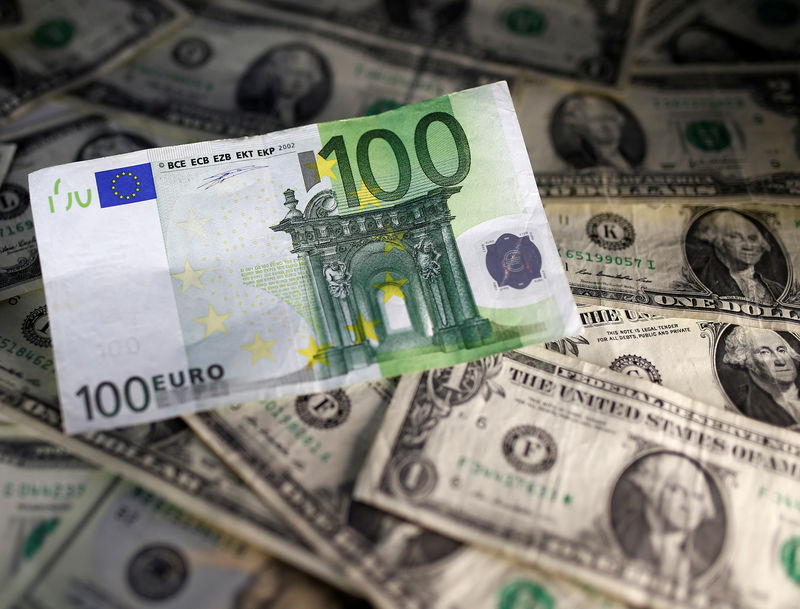Investing.com - The dollar remained on the back foot on Tuesday amid the view that the Federal Reserve won’t speed up the pace of monetary tightening, while the euro hit six-week highs as concerns over France’s presidential elections eased.
The U.S. dollar index, which measures the greenback’s strength against a trade-weighted basket of six major currencies, was down 0.27% at 99.89.
Chicago Fed President Charles Evans said Monday the Fed is on track to raise rates twice more this year, disappointing some investors who had hoped for a faster rate of tightening.
The Fed hiked rates last week, and reiterated that the future pace of rate hikes would be gradual. Heading into the meeting, dollar bulls had braced for a potentially more hawkish tone from the central bank.
The dollar also came under selling pressure after G20 financial leaders dropped a pledge to keep global trade free and open from a policy statement at the weekend, following opposition from the increasingly protectionist Trump administration.
The move renewed uncertainty over U.S. trade relations and by extension the Trump administrations concerns over the strong dollar.
The euro hit six-week highs, with EUR/USD advancing 0.5% to 1.0792, its highest level since February 3.
The single currency was boosted after opinion polls showed that Emmanuel Macron consolidated his status as frontrunner in France's presidential election in a televised debate against his main rival, far-right anti-EU leader Marine Le Pen.
Le Pen has pledged to take France out of the euro and hold a referendum on EU membership.
Sterling was also higher, with GBP/USD rising 0.24% to 1.2388 ahead of a UK inflation report expected to show that inflation has returned to its 2% target as Britain braces for Brexit to be triggered on March 29.
The dollar pushed higher against the yen, with USD/JPY adding 0.15% to trade at 112.73 after falling as low as 112.29 overnight, its weakest since February 28.
